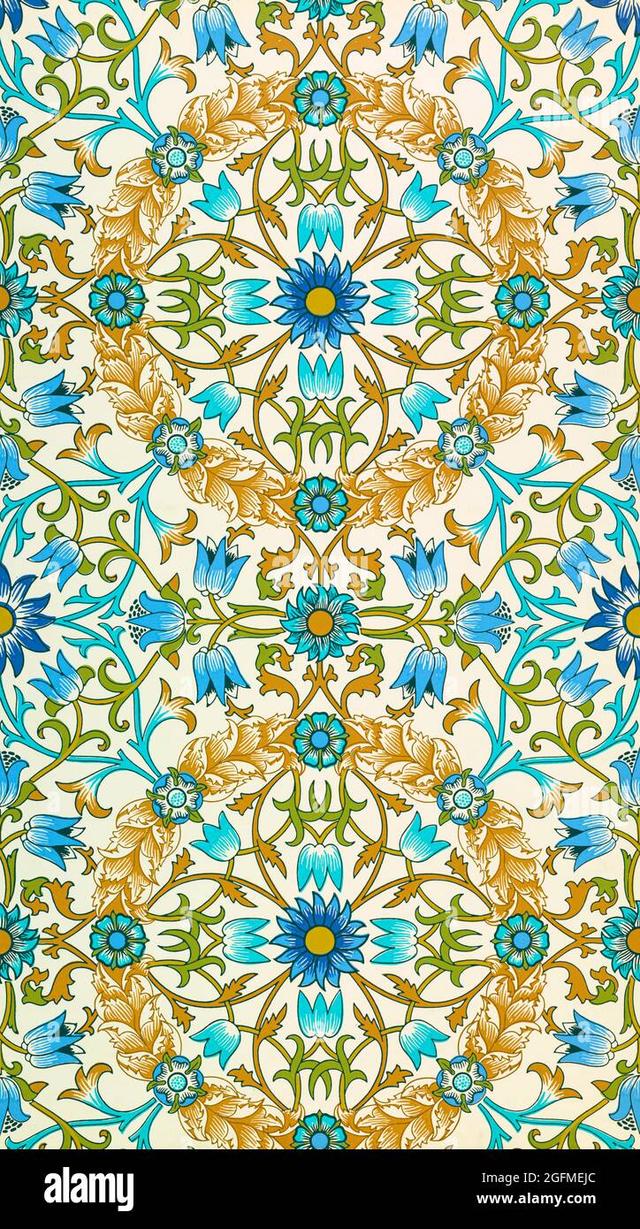Arabesque Scroll
Definition
This term refers to a decorative design featuring intertwined flowing lines, often resembling vines, leaves, or floral motifs, typically found in Islamic art and architecture.
History
Arabesque patterns have been a fundamental element of Islamic art, symbolizing the infinite nature of creation and often used in architecture, textiles, and manuscripts.
Notable Examples

Alhambra Palace
Moorish Arabesque Tiles,

William Morris
The Vine, 1873
Key Artists & Movements
While primarily associated with Islamic art, the arabesque was also adapted in Western decorative arts, with figures like William Morris drawing inspiration from these intricate designs.
Techniques & Materials
Techniques include carving, tile work, painting, and textiles, with a focus on symmetry, repetition, and the fluidity of lines to create intricate, non-representational patterns.
2940 Portland Dr.
Oakville, Ontario, Canada L6H5W8
Khalifa Blvd, Dubai, UAE
[email protected]